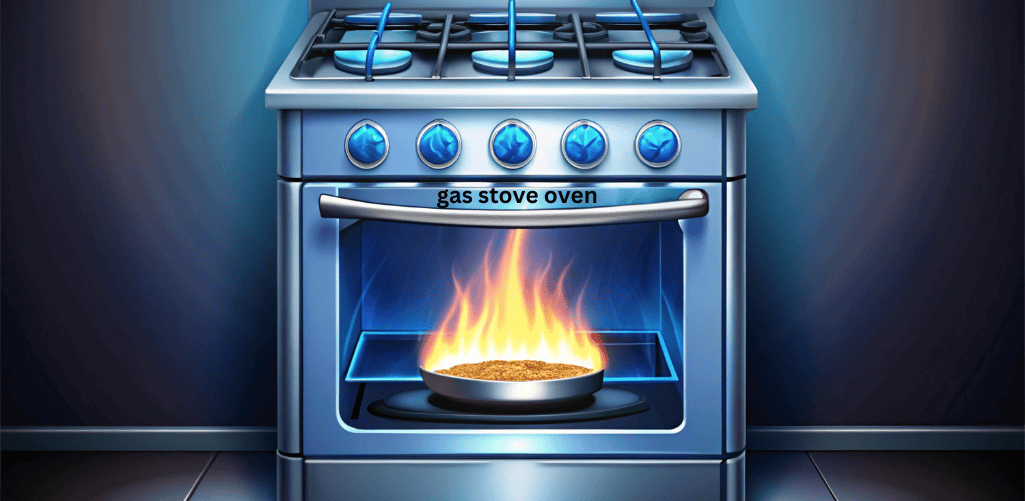
The gas stove oven is the ultimate in cooking technology since it combines cutting-edge innovation with time-honoured techniques. This thorough guide will cover the Empava Single Gas Wall Oven, a 24-inch marvel with five different cooking modes, an integrated convection fan, and advanced controls via a digital display panel and mechanical knobs. Designed in sleek stainless steel, this natural gas-only stove is the ideal combination of practicality and style. Whether you’re a home cook or a professional chef, knowing this gas stove oven’s features, capabilities, and maintenance needs will help you get the most out of your culinary explorations and guarantee years of dependable kitchen service.
Understanding Gas Wall Ovens
What Sets Gas Ovens Apart
Gas ovens offer unique cooking characteristics that distinguish them from their electric counterparts:
Natural moisture retention
Even heat distribution
Quick temperature response
Energy efficiency benefits
Technology Evolution
Historical development
Modern innovations
Integration of digital controls
Safety advancement
Empava Gas Wall Oven Features
Five Cooking Functions
Traditional Baking
Temperature range
Heat distribution
Ideal uses
Performance metrics
Broiling
High-heat capabilities
Distance adjustments
Cooking applications
Safety considerations
Convection Baking
Fan operation
Heat circulation
Temperature adjustments
Energy efficiency
Warming
Temperature maintenance
Food safety
Usage guidelines
Energy consumption
Defrosting
Time requirements
Safety procedures
Best practices
Temperature control
Technical Specifications
Physical Dimensions
Overall measurements
Installation requirements
Clearance needs
Weight considerations
Power and Performance
BTU ratings
Temperature range
Preheat times
Energy efficiency ratings
Installation Requirements
Space and Ventilation
Minimum clearances
Ventilation requirements
Heat dissipation
Safety considerations
Gas Line Requirements
Natural gas specifications
Pressure requirements
Professional installation
Safety certifications
Control Systems
Mechanical Control Knobs
Durability features
Temperature precision
Ease of use
Maintenance requirements
Digital Display Panel
Function indicators
Temperature display
Timer features
Programming options
Cooking Performance
Heat Distribution
Convection technology
Temperature consistency
Hot spot prevention
Cooking uniformity
Temperature Control
Precision settings
Response time
Temperature stability
Adjustment capabilities
Design and Construction
Stainless Steel Build
Material quality
Durability factors
Cleaning ease
Aesthetic appeal
Interior Design
Capacity specifications
Rack positions
Light placement
Cleaning access
Safety Features
Gas Safety Systems
Automatic shut-off
Flame detection
Gas leak prevention
Emergency protocols
Temperature Management
Overheating protection
Cool-touch exterior
Child safety features
Warning systems
Maintenance and Care
Regular Cleaning
Cleaning methods
Recommended products
Frequency guidelines
Prevention tips
Long-term Maintenance
Professional service
Part replacement
Performance checks
Preventive care
Gas Stove Ovens
- Superior moisture retention
- Quick temperature response
- Multiple cooking functions
- Durable stainless steel
- Professional-grade components
- Dual control systems
- Precise temperature control
- Programming flexibility
- Comprehensive protection
- Modern safety standards

- Professional installation needed
- Specific ventilation needs
- No LPG compatibility
- Fuel source dependency
- Additional accessories
- Installation expenses
Energy Efficiency
Consumption Analysis
Operating costs
Energy ratings
Efficiency comparisons
Cost savings
Environmental Impact
Emissions considerations
Carbon footprint
Sustainability factors
Environmental benefits
Cost Analysis
Purchase and Installation
Unit pricing
Installation costs
Required accessories
Professional fees
Operating Expenses
Gas consumption
Maintenance costs
Part replacement
Long-term value
Comparison with Other Ovens
Gas vs. Electric
Performance differences
Cost comparison
Usage considerations
Installation requirements
Gas vs. Dual Fuel
Feature comparison
Performance analysis
Cost considerations
Installation differences
Frequently Asked Questions
What’s the average lifespan of this gas wall oven?
The Empava gas wall oven normally lasts 15 to 20 years with regular care.
Is it possible for me to install this oven myself?
For safety and warranty reasons, professional installation is necessary.
How frequently is it necessary to service the oven?
Regular cleaning and a yearly professional check are advised.
What is the digital display’s power backup system?
A battery backup device for power interruptions is included in the digital display.
Can I use an LPG converter?
This model cannot be changed to LPG because it is only made for natural gas.
What is covered under the warranty?
Parts and labour are covered by the standard warranty for a year after installation.
Conclusion
Modern cooking technology is exemplified by the Empava Single Gas Wall Oven, which provides professional-grade functionality in a stylish, effective compact. It is a great option for both serious home cooks and casual users due to its digital ease and mechanical dependability, as well as its superb cooking performance and safety features. Even while the initial cost and installation requirements might appear high, every kitchen would benefit from the long-term advantages of reliable cooking results, energy efficiency, and durability.
Convection technology, accurate temperature control, and five cooking settings offer versatility for a range of cooking requirements, and the stainless steel structure guarantees longevity and ease of maintenance. The Empava model provides a remarkable combination of conventional and modern features for individuals looking for a dependable, high-performance gas-wall oven.